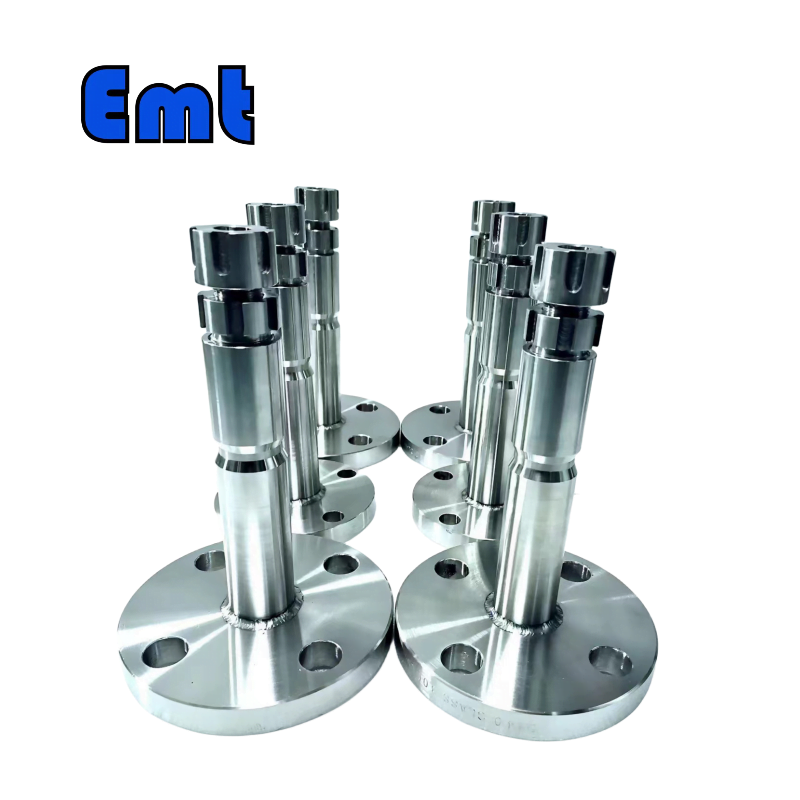Description
1. Introduction to Resistance Probe
1) Definition and Purpose of Resistance Probe
A resistance probe is a specialized instrument designed to monitor and measure the rate of corrosion in diverse environments. Its primary purpose is to detect the presence and extent of corrosion in structures, such as pipelines, tanks, and vessels. By providing valuable data on corrosion rates, resistance probes allow for timely maintenance and intervention, thereby preventing significant damage or failure of structures and equipment.
2) Principle of Operation
The operation of resistance probes is based on the principle of electrical resistance. These probes, often composed of a wire or rod, are electrically insulated except for the end that is exposed to the corrosive environment. As the probe starts to corrode, the cross-sectional area of the exposed end decreases, leading to an increase in electrical resistance. This change in resistance is measurable and can be converted into a corresponding corrosion rate. This direct method of tracking corrosion progress allows for accurate, real-time monitoring and early detection of potential issues.
3) Types of Resistance Probe
Resistance probes come in two main types: single-element and multi-element. Single-element probes provide a general measure of the overall corrosion rate over time. They are useful in applications where a broad overview of corrosion is sufficient for maintenance and operational decisions.
On the other hand, multi-element probes offer a more detailed analysis by showing the corrosion rate at different points along the probe’s length. This allows for a more granular understanding of how corrosion is affecting a structure or piece of equipment, providing more specific data for targeted intervention and preventative measures.
2. Applications of Resistance Probe

1) Use in the Oil and Gas Industry
In the oil and gas industry, resistance probes play a pivotal role in monitoring corrosion levels in pipelines, tanks, and vessels. These structures are frequently exposed to harsh, corrosive conditions that can compromise their integrity over time. By providing real-time data on corrosion rates, resistance probes enable the early detection and prevention of potential equipment failures. This not only enhances the safety of operations by reducing the risk of leaks and blowouts. But also increases efficiency by minimizing downtime for repairs and replacements.
2) Role in the Chemical Processing Industry
Resistance probes provide invaluable support to the chemical processing industry. Chemical storage tanks and processing equipment are often subject to corrosion due to the reactive nature of the substances they handle. By managing corrosion in these structures, resistance probes help maintain system integrity and prevent hazardous chemical leaks, ensuring a safer working environment. Additionally, the data provided by these probes allows for the optimization of maintenance schedules, further enhancing the lifespan and efficiency of the equipment.
3) Implementation in the Food and Beverage Industry
In the food and beverage industry, cleanliness and safety of processing equipment are paramount. Resistance probes aid in ensuring these standards by detecting and monitoring corrosion. If left unchecked, could contaminate products and violate food safety regulations. By providing early warning of equipment degradation, these probes can help prevent costly production shutdowns and potential public health risks.
4) Other Industries Benefiting from Resistance Probes
The utility of resistance probes extends to several other industries as well. In water treatment facilities, they are employed to manage corrosion in tanks and pipes, thereby ensuring the quality of the water supply. Power generation plants use these probes to monitor corrosion in boilers and cooling systems, helping to prevent unexpected failures and maintain overall plant efficiency. In the maritime industry, resistance probes are used to monitor corrosion in ship hulls and offshore structures, contributing significantly to maritime safety and the longevity of vessels and structures.
3. Limitations and Challenges

1) Factors Influencing the Effectiveness of Resistance Probes
Although resistance probes are a useful tool for corrosion monitoring, there are several factors that can affect their effectiveness. For instance, the characteristics of the environment where they are used. Such as temperature, pressure, and the chemical composition of corrosive agents, can impact their readings and longevity. The nature of the material being monitored can also affect the probe’s performance, as different materials corrode at different rates. Furthermore, the presence of debris or coatings on the probe can interfere with its ability to accurately measure corrosion rates.
2) Importance of Proper Use and Maintenance
Proper use and maintenance are critical to the successful operation of resistance probes. Over time, probes can become coated or clogged with debris, which can affect their sensitivity and accuracy. Regular cleaning and inspection are necessary to ensure that the probes function optimally.
Moreover, choosing the right probe for the specific application is vital. For example, using a probe designed for high-temperature environments in a low-temperature setting could lead to inaccurate readings.
Additionally, the collected data needs to be interpreted correctly to make informed decisions about the condition of the monitored equipment or structure. Misinterpretation of the data could lead to inappropriate actions. Such as unnecessary replacement of equipment or, conversely, failure to take necessary preventive measures.
In conclusion, while resistance probes offer significant benefits for monitoring corrosion. Their effectiveness is dependent on various factors including the environment, the specific application, and proper maintenance. Understanding these factors is essential to maximize the benefit of this important tool in corrosion control.
4. Conclusion
1) Overall Importance and Value of Resistance Probes in Industry
Resistance probes have emerged as an indispensable tool in various industries due to their ability to provide accurate, real-time data on corrosion rates. Their importance cannot be understated, given the critical role they play in maintaining the integrity of infrastructure, reducing unscheduled downtime, and ultimately, saving costs. By providing early warnings of corrosion, they allow for timely intervention, prolonging the life of equipment and structures, and maximizing operational efficiency.
Furthermore, the data provided by these probes is invaluable in strategic planning. It helps in scheduling maintenance, deciding when to replace equipment, and understanding the effectiveness of corrosion protection measures. This insight can lead to more informed decision-making, further enhancing the value of these tools in the industrial landscape.
2) Role in Maintaining the Integrity and Safety of Industrial Equipment
The safety implications of resistance probes are equally significant. In industries such as oil and gas, chemical processing, and food and beverage, a failure due to corrosion could have catastrophic consequences, including environmental damage, injury, or even loss of life. By detecting corrosion in its early stages, resistance probes can help prevent these disastrous outcomes.
Additionally, by ensuring the integrity of industrial equipment, resistance probes contribute to the overall safety of the working environment. They help in maintaining the quality and safety of products. Particularly in industries like food and beverage where contamination could have serious public health implications.
In conclusion, resistance probes play a crucial role in modern industry, not only by enhancing operational efficiency and extending the life of equipment but also by safeguarding the environment, workers, and the general public. Despite the challenges and limitations they may present, their value in maintaining the safety and integrity of industrial equipment is indisputable.





Reviews
There are no reviews yet.